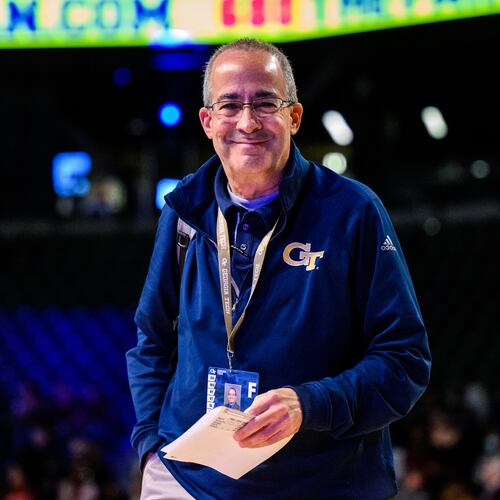In his storied playing career, Bill Curry had the privilege of playing for three absolute coaching greats – Bobby Dodd at Georgia Tech, Vince Lombardi with the Green Bay Packers and Don Shula with the Baltimore Colts.
In his book, "Ten Men You Meet in the Huddle," the Tech great called Shula the greatest coach of the three legends. On Monday, following Shula's death at the age of 90, Curry repeated his praise.
“I was really lucky to get to play for him,” Curry told the AJC.
Curry played for Shula, the NFL’s coach with the most wins, from 1967-69 before Shula left to coach the Miami Dolphins. Shula acquired Curry in a trade with the New Orleans Saints, who obtained him from the Green Bay Packers in the 1967 NFL expansion draft.
After the trade, Curry went on to play 95 more games, starting 74 of them. Shula, Curry said, had a knack for finding value in players that others did not.
“I think it was just a feel thing,” Curry said. “I think he had a gift for recognizing something in a player. He had a lot of players that were castoffs. I was one of them. He had a bunch of them on the Dolphins.”
At the time of the trade, Shula called Curry and told him that he wanted him on the Colts to play special teams, a skill he learned while playing for Dodd at Tech. A pioneer in emphasizing the kicking game, Shula wanted to know if Curry would be happy with a special-teams role.
“I said, ‘Coach, I will walk to Baltimore to play for you,’ ” Curry said.
Shula liked enough of what he saw from Curry to name him his special-teams captain. The 1967 season opener was at home against the Falcons in a national-television game, as Curry recalled. The Colts ran back a punt for a touchdown, but it was waved back because Curry was called for clipping.
“Shula ran on the field and grabbed me and screamed in my face,” Curry said. “And if you come on the field in the NFL with a bunch of crazy people, then we’re probably going to scream back at you, which I did, with the same language that he was using.”
The following Tuesday, in a film-review session, an assistant coach showed the play and asked Curry if it was a clip. Curry said he answered, “Possibly.” Curry said that the coach answered back, “Well, let me make a suggestion. The next time you decide to dog-cuss the coach on national TV, you make damn sure it’s not a clip.”
At the time, Curry’s eldest child (Kristin) was a few weeks old. His wife, Carolyn, was on her way to Baltimore. Curry feared his Colts career, and perhaps his NFL career, was ending. He sought out Shula, and the two repaired to an equipment room. Curry apologized profusely for his outburst and promised that it would never happen again.
“You know what he said?” Curry asked. “He smiled and he said, ‘You know what? I kind of liked that. Just don’t clip the guy.’”
It was an example of Shula’s skill at motivating players by connecting with them, a quality that anticipated the changes in coach-player relationships in years to come. Players, for example, could poke fun at Shula in team meetings (“at times,” Curry said) in a way that Curry wouldn’t dare have done with Dodd or Lombardi.
“We would run through walls for him,” Curry said. “If he believed in you, he would never give up on you.”
Shula was plenty old-school. Curry said that, where Lombardi put the Packers through 10 days of two-a-day practices in the preseason, Shula’s method was six weeks of two practices a day.
But, Curry said, “He had a gift of knowing when to put the hammer down and when not to, and I think only the great ones have that.”
Shula put trust in Curry again after that first season with the Colts, when he played linebacker but did not measure up. (Said Curry, “My coach for defense was Chuck Noll. If you’ve got Chuck Noll for your coach and you can’t play, something’s wrong with you.”) Curry feared again that Shula would get rid of him, but he instead moved him back to center, where he had played with the Packers (and at Tech).
The change enabled him to play another seven seasons in the NFL, during which he was selected for two Pro Bowls, snapped to Johnny Unitas, won a Super Bowl and played in another.
Said Curry, “I owe it all to him.”
About the Author
Keep Reading
The Latest
Featured

